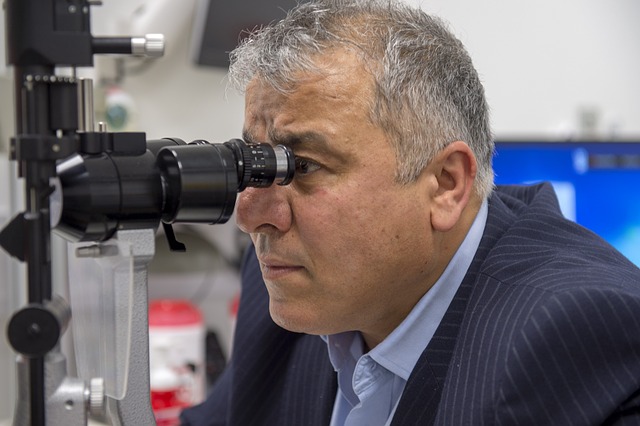The UK Advanced Liver Blood Test is a powerful tool that includes ferritin measurements, aiding in early detection of iron deficiencies. Ferritin, an iron storage protein, decreases with declining iron levels, affecting vital bodily functions. Low ferritin (below 20 mcg/mL) indicates deficiency; healthcare professionals may recommend dietary changes or supplements to manage this, preventing anemia and promoting optimal liver health.
“Unraveling the Mystery of Iron Deficiency: A Comprehensive Guide. Discover how ferritin level testing, particularly the UK Advanced Liver Blood Test, offers a powerful tool in diagnosing iron deficiency anemia. This comprehensive article delves into the significance of ferritin as an indicator of iron storage and its role in managing this common yet often overlooked health concern. From understanding the test itself to interpreting results and tailored management strategies, you’ll gain valuable insights for optimal health.”
- Understanding Ferritin and Its Role in Iron Deficiency
- The UK Advanced Liver Blood Test: What to Expect and Why It Matters
- Interpreting Results and Managing Iron Deficiency Anemia
Understanding Ferritin and Its Role in Iron Deficiency
Ferritin is a protein that plays a vital role in iron storage and regulation within the body. It acts as a crucial indicator of iron status, especially in cases of deficiency. When iron levels drop below normal, ferritin production decreases, leading to reduced iron availability for bodily functions. This protein is particularly important for maintaining healthy blood cells and supporting overall organ health, including the liver, which relies on efficient iron metabolism.
In the UK, advanced liver blood tests often include measurements of ferritin as part of a comprehensive assessment. By analysing ferritin levels, healthcare professionals can identify individuals with potential iron deficiency early on. This is essential because iron is a critical component for various physiological processes, and its deficiency can result in anaemia and other health complications. Understanding ferritin’s role in iron homeostasis is, therefore, integral to effective management and treatment of iron-related disorders, as highlighted by advanced liver blood tests in the UK.
The UK Advanced Liver Blood Test: What to Expect and Why It Matters
In the UK, the Advanced Liver Blood Test is a comprehensive assessment that includes measuring ferritin levels alongside other key markers. This test goes beyond basic blood work, providing insights into liver health and potential iron deficiency. Ferritin, stored iron in the body, is a crucial indicator; low levels can signal an underlying issue. By including it in the advanced panel, healthcare professionals gain a more detailed picture of a patient’s overall health, especially in cases where traditional symptoms may be absent.
The UK Advanced Liver Blood Test matters because it allows for early detection of iron deficiency, which is often asymptomatic but can lead to significant health complications if left untreated. This test encourages proactive healthcare by enabling medical professionals to recommend tailored interventions, such as dietary changes or supplements, to address any identified deficiencies, thereby promoting optimal liver function and overall well-being.
Interpreting Results and Managing Iron Deficiency Anemia
Interpreting Results and Managing Iron Deficiency Anemia
After undergoing a UK Advanced Liver Blood Test, it’s crucial to understand your ferritin levels. Ferritin is a protein that stores iron in your body. Low ferritin levels indicate iron deficiency, which can lead to anemia. Generally, a ferritin level below 20 micrograms per milliliter (mcg/mL) is considered low and suggests potential iron deficiency. However, this can vary slightly based on age and gender.
If your test results show low ferritin, it’s important to discuss the findings with your healthcare provider. They may recommend lifestyle changes such as increasing dietary iron intake through foods rich in heme iron (like red meat) or non-heme iron (found in plants). In some cases, supplements may be prescribed. Persistent or severe iron deficiency anemia might require further investigation and specialized treatment.
Ferritin level testing, as part of the UK Advanced Liver Blood Test, is a crucial tool in identifying iron deficiency anemia. By understanding ferritin’s role and interpreting test results accurately, healthcare professionals can effectively manage this condition. The UK Advanced Liver Blood Test provides comprehensive insights into liver health and iron levels, enabling timely interventions to alleviate iron deficiency and its associated symptoms.
